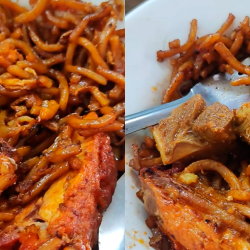RPT-ANALYSIS-African swine fever inflicts renewed toll on northern China's hog herd
(Repeats story for wider readership with no change to text)
By Dominique Patton
BEIJING, April 1 (Reuters) - A wave of African swine fever outbreaks this year has wiped out at least 20% of the breeding herd in northern China, industry sources and analysts said, exceeding expected losses and raising fears about the potential for further impact in the south.
The estimates point to the extent of the disease's resurgence in the first quarter of 2021 after more than a year of declining outbreaks, heralding a significant setback to China's efforts to replenish its hog herds after African swine fever reached the country in August 2018 and wiped out 50% of the country's pigs within a year.
The virus' impact slowed by late 2019 as pig numbers fell and large producers learned to minimise its spread by removing infected pigs from herds early, a process the industry calls "tooth extraction".
But an exceptionally cold winter, a higher density of pigs following a year of restocking, and new strains of swine fever triggered a fresh wave of outbreaks across the northeast, northern China and Henan province, the country's third-biggest hog producing province.
"At least 20% of the herd was affected, maybe even 25%" in the northern and northeastern Chinese provinces because of outbreaks during the first quarter, said Jan Cortenbach, chief technical officer at feed maker Wellhope-De Heus Animal Nutrition.
Henan lost between 20% and 30% of its breeding sows, a report by Founder Cifco Futures said on Monday, adding the damage could be "irreversible".
Beijing Orient Agribusiness Consultant Ltd said in a report last month that sow stocks in northern China in March fell by between 25% and 30% compared to February.
"This feels like 2018, 2019 all over again," said a China-based manager with a company that supplies large hog producers.
Several customers in northern China have lost thousands of sows in recent months, he added, with some losing more than half of their breeding stock.
The Ministry of Agriculture and Rural Affairs did not respond to a fax seeking comment on a resurgence of the disease and significant losses over the winter.
Food security is a sensitive issue in China and the government has confirmed few African swine fever outbreaks since the virus began spreading. Numerous industry insiders have described the impact as worse than official data show. The disease is not harmful to humans.
The agriculture ministry reported eight African swine fever outbreaks in the first quarter, mostly on small farms or in pigs in transit in southern China. It said the sow herd grew by 1.1% in January versus December and a further 1% in February.
NORTHERN WAVE
Shandong and Hebei provinces in northern China are both among the country's top six pig producing provinces and the first quarter outbreak was especially severe in Shandong, Beijing Orient said.
New Hope Liuhe, China's fourth-largest hog producer, told investors in March that African swine fever had a large impact in Hebei and northern Shandong, where it has many farms.
Though losses varied between companies, "in general it may be more serious than in early 2019 when most companies did not master prevention and control methods such as precise tooth extraction," said Yan Zhichun, the company's chief science officer, according to a transcript of a call with investors on March 4.
A considerable portion of New Hope's farms in Hebei and Shandong were impacted by "atypical" swine fever strains, said Yan. The firm had previously reported finding a less deadly, but chronic form of swine fever on its farms.
It said its sow herd shrank 7.5% from December to February, or by 90,000 pigs, because of African swine fever as well as the elimination of inefficient sows.
The agriculture departments for Hebei, Shandong and Henan provinces did not reply to questions sent by fax about the resurgence of swine fever.
PIGLET PRICES RISE
While live hog prices fell sharply from January to March, piglet prices are rising because of the hit to the breeding herd, Changjiang Securities said in a note this week.
Piglets cost on average more than 1,800 yuan ($273.94) per head, it said, not far off the record 2,356 yuan in February 2020, and significantly up from 995 yuan in November.
That will eventually translate to higher pork prices.
Producers in the south are on high alert, said industry sources, after rain and floods were blamed for swine fever outbreaks last year.
"With the arrival of the rainy season in the second quarter, it is still unknown how swine fever will impact the south," said the Changjiang analysts.
($1 = 6.5708 Chinese yuan renminbi)
(Reporting by Dominique Patton; Editing by Christian Schmollinger)






